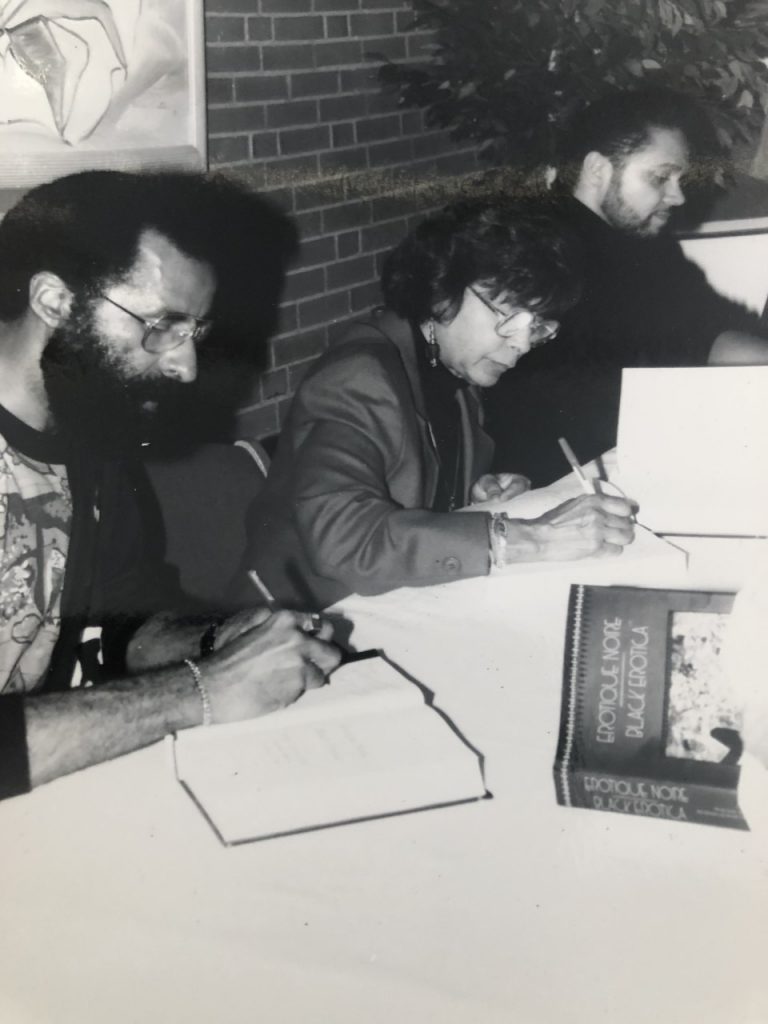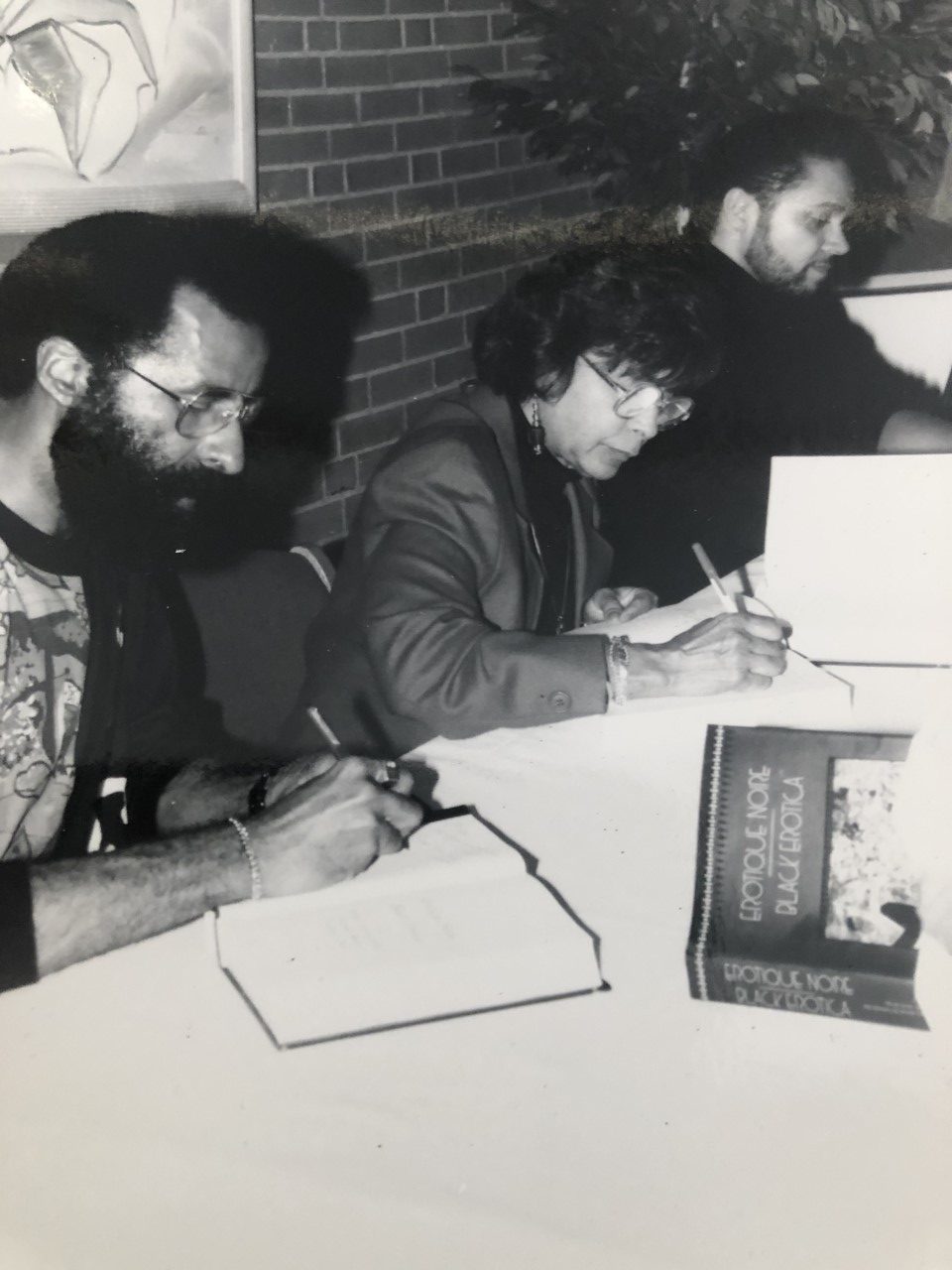 While Black American history is celebrated year-round at LeMoyne-Owen College (LOC), we are pleased that February offers us another opportunity to highlight the contributions of so many in our community whose legacy and impact continue long beyond their physical presence in our midst. In January, we bid farewell to one of our academic scholars and trailblazers, Dr. Miriam DeCosta-Willis, who touched so many in the LeMoyne-Owen College community and beyond. You know someone has truly made a difference when you listen to the voices of students and faculty who worked closely with them; those who speak passionately about how they learned and were challenged to excel. Dr. DeCosta-Willis never settled for mediocrity from any student, regardless of family circumstance or background.
While Black American history is celebrated year-round at LeMoyne-Owen College (LOC), we are pleased that February offers us another opportunity to highlight the contributions of so many in our community whose legacy and impact continue long beyond their physical presence in our midst. In January, we bid farewell to one of our academic scholars and trailblazers, Dr. Miriam DeCosta-Willis, who touched so many in the LeMoyne-Owen College community and beyond. You know someone has truly made a difference when you listen to the voices of students and faculty who worked closely with them; those who speak passionately about how they learned and were challenged to excel. Dr. DeCosta-Willis never settled for mediocrity from any student, regardless of family circumstance or background.
Dr. DeCosta-Willis was a brilliant scholar; however, in 1957 she was denied admission to then Memphis State University. She was a Phi Beta Kappa graduate of Wellesley College and went on to earn a Ph.D. from Johns Hopkins University. She later was appointed to a faculty position at Memphis State University in 1966, where she taught Spanish. We are pleased that the University of Memphis saluted Dr. DeCosta-Willis as its first Black professor and recognized her pivotal role in breaking the glass ceiling for Blacks at the university. This is a notable accomplishment for our community.
We are proud that Dr. DeCosta-Willis began her academic and scholarly journey in the classrooms of Steele Hall at LeMoyne-Owen College. Professor Phillip R. Dotson, truly an artist and historian himself and someone who has taught for more than four decades at the college, describes Dr. DeCosta-Willis as one of the most intellectually brilliant and prolific writers he has had the opportunity to work with during his career.
Dr. DeCosta-Willis first joined the S.A. Owen Jr. College faculty, where she taught Spanish and introduced many first-generation college students to Romance languages in the 1950s and 1960s. Professor Dotson describes her outreach as a bridge to Black writers across the country. As co-founder of the Black Writer’s Workshop, Dr. DeCosta-Willis convened African American writers, creating a renaissance for networking outstanding authors, historians and artists. She went on to write and edit nine books and many articles and be invited to speak at numerous conferences and events.
LOC professor and attorney Charlotte Bush recounts first meeting Dr. DeCosta-Willis through the Upward Bound Program at Booker T. Washington High School where she inspired students in the summer and emphasized to them that they would come to LOC to find and define their voice. “She was tenacious, and gave every student an opportunity to excel. She taught us about ‘Hidden Figures’ long before the movie documented the contributions of Black female scientists. She was socially and politically active in the community and put the fire in all of us to succeed,” says Professor Bush.
Former Memphis City School Board Commissioner Sara Lewis describes Dr. DeCosta-Willis as a “strict and great teacher.” She recalls that Dr. DeCosta-Willis had very high standards, but was always approachable and willing to take the time to explain and give students feedback to help them improve. Commissioner Lewis says, “Some professors boast about having high standards, but are reluctant to go the extra mile to ensure success. This was not true of Dr. DeCosta-Willis. She always went the distance to ensure students achieved.” Commissioner Lewis will always remember the support and encouragement she received for her senior thesis project. She fondly described Dr. DeCosta-Willis, Dr. Juanita Williams, and Dr. Velma McLemore as among the strongest faculty in the college. “These educators were women of great strength and intellect. You felt that if you succeeded with them, you would be prepared for any graduate-level work elsewhere,” says Commissioner Lewis.
Dr. Sandra Vaughn, LOC Interim Vice President for Academic Affairs, describes being exposed to Paula Giddings, Nikki Giovanni and Sonia Sanchez as examples of the notable writers who were invited by Dr. DeCosta-Willis to visit the LOC campus. Dr. DeCosta-Willis emphasized the importance of documenting the history of Memphis. Examples of her advocacy for Black history are represented in, “The Memphis Diary of Ida B. Wells,” “Notable Black Memphians,” and “Black Memphis Landmarks.” Another example of her scholarly work is “Homespun Images: An Anthology of Black Memphis Writers and Artists,” that can be found among the rare Sweeney Collection at the Hollis F. Price Library on the LOC campus.
Dr. Vaughn says that, “Dr. DeCosta-Willis never restricted herself to one discipline or geographic location. Whether it was her excursions to the Holy Land or Ghana, she had a way of pulling together scientists, politicians, artists and poets. She was able to capture a range of personal and historical stories. She always found ways to stir our inspirational juices and model for us how to write well and construct meaning from other authors.”
Dr. DeCosta-Willis founded the W.E.B. DuBois Honors Program, which continues today under the leadership of Professor Dorsey Patterson, recruiting scholars and offering an academically rigorous and engaging course of study and network for students. Dr. DeCosta-Willis believed as Professor DuBois stated, “The Black College exists to prepare Black men and women to perform at a high level the work the world wants done.” Dr. DeCosta-Willis felt her mission at LeMoyne-Owen College was to demonstrate that mandate as she taught students.
Dr. DeCosta-Willis had a tremendous impact on many, including: Dr. Reginald Martin, Professor of English, University of Memphis; Mr. Otis Sanford, Editorial Writer and Author; and Dr. Beverly Bond, University of Memphis African American History Professor. Among her many students was the Reverend Dr. Rosalyn R. Nichols, Freedom’s Chapel Christian Church Pastor, who describes her as a “rare jewel” who lived to the full extent of her womanhood, never compromising her standards of excellence and brilliance. Reverend Nichols admits that she still has a copy of a paper that Dr. DeCosta-Willis graded as “good,” but then proceeded to tell her that she could do better and worked with her to make it a “great” paper.
Dr. DeCosta-Willis impacted many in our community. Along with NAACP activist and community leader, Mrs. Maxine Smith, Dr. DeCosta-Willis transformed the Memphis landscape and the future trajectory for numerous LOC students, many the first in their families to attend college. West Tennessee Regional Medical Director Dr. Shavetta Conner, a biology major at LeMoyne-Owen College and someone mentored by Dr. DeCosta-Willis, describes her as among the most impactful professors she encountered. “She introduced me to Zora Neale Hurston and Toni Morrison. Every semester, I vigilantly sought out and signed up for every course Dr. DeCosta-Willis taught. She opened up a whole new world for me in reading. My mother, someone who had not attended college, was so inspired by what I shared about our course assignments that she would occasionally join me in class just to hear Dr. DeCosta-Willis’s lecture and learn from the class discussions,” says Dr. Conner.
Dr. Conner acknowledges that she absolutely loves science, but she is forever grateful to Dr. DeCosta-Willis, for helping her to get in touch with her creative and expressive voice. Even after graduating from LeMoyne-Owen College, Dr. Conner was fortunate to remain connected to Dr. DeCosta-Willis, who had and continues to have a tremendous impact on her life and her future. “Perhaps, what I will cherish most is the gift that I have been able to pass along to many friends and family members, opening up their world in the same way that Dr. DeCosta-Willis opened mine…truly a gift forever,” says Dr. Conner.
LeMoyne-Owen College cherishes the legacy and memories of the many faculty and students who have contributed to educational attainment and community well-being in Memphis and across this nation. As we celebrate Black History Month, 2021, we pause to celebrate the life and legacy of Dr. Miriam DeCosta-Willis.
Dr. Carol Johnson Dean
February 2021

